How a Eurovision star's song about coming out became a gay anthem
- Oops!Something went wrong.Please try again later.
- Oops!Something went wrong.Please try again later.
After 66 years of high camp and brazen queerness, you might think there’s not much left for performers to do at the Eurovision Song Contest that hasn’t already been done before.
You’d be wrong.
Even in the lead-up to Saturday’s 2022 Eurovision Grand Final in Turin, Italy, two queer milestones have already been marked this week. On Tuesday, when the Icelandic trio Systur learned that they’d made it through the first semifinal, they proudly waved the transgender flag alongside that of their country's.
Then at the second semifinal on Thursday, San Marino’s singer Achille Lauro planted the first mid-Eurovision-performance male-male kiss squarely on his guitarist’s lips.
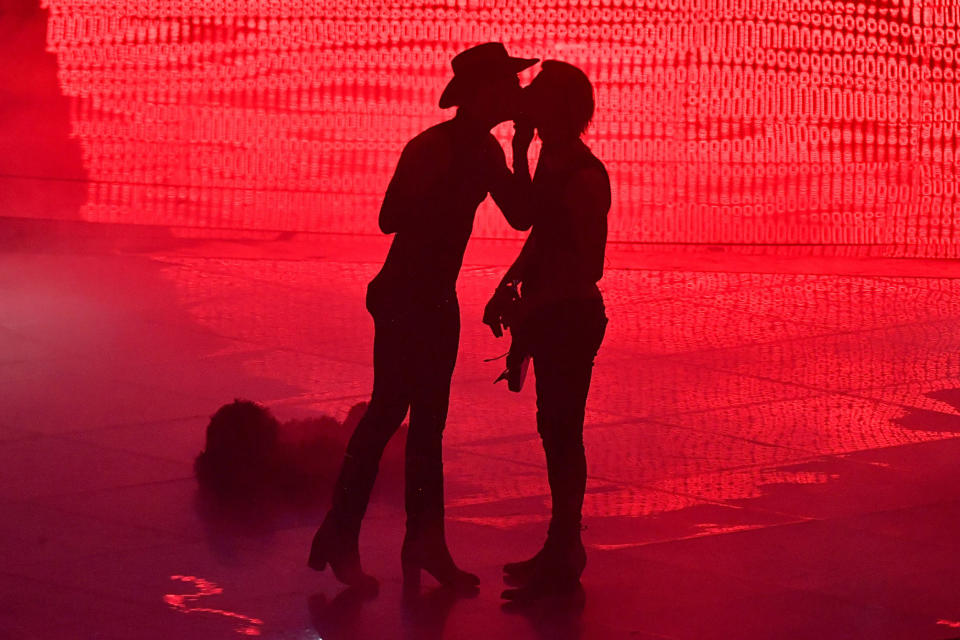
And that’s nothing to speak of the wacky stage gimmickry that’s the hallmark of Eurovision, which this year has already featured unexpected firsts like monk-supervised hand-washing (Serbia), donning wolf masks (Norway) and riding a mechanical bull (again, San Marino).
From Israel’s Dana International to Austria’s Conchita Wurst to the Netherlands’ Duncan Laurence, LGBTQ performers have always been warmly embraced at Eurovision. Last year, a record five acts in the grandfFinal consisted fully or in part of out queer performers — including winners Måneskin from Italy, with bisexual member Victoria De Angelis and “sexually free” member Ethan Torchio.
This year’s Eurovision Grand Final on Saturday will feature two out queer acts — Iceland’s aforementioned Systur and Australia’s Sheldon Riley — and performances from several other contestants will telegraph robust endorsements of queer sexuality.
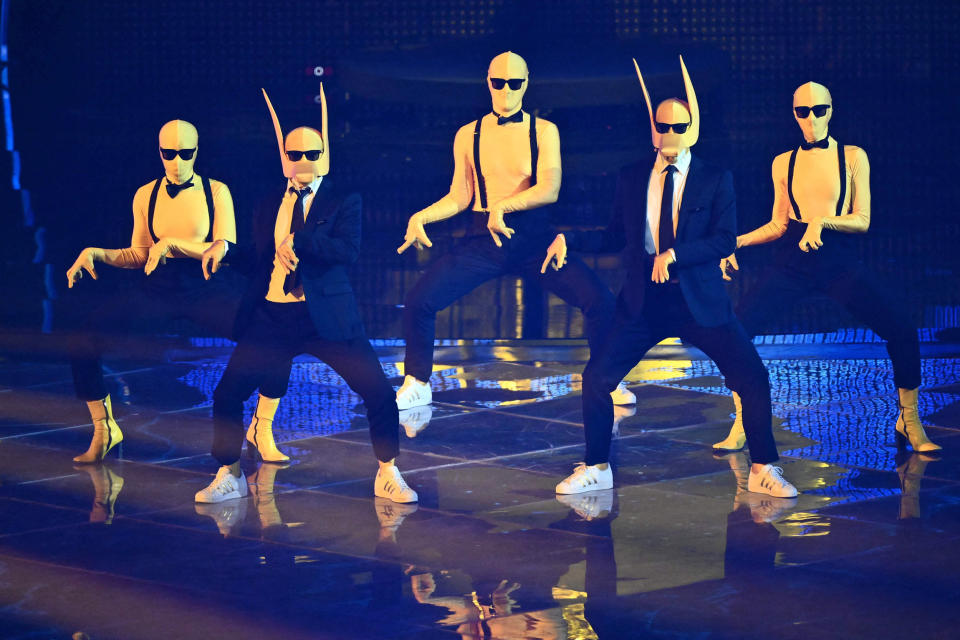
Hosting the extravaganza will also be two beloved out gay stars: singer Mika, who’ll be live from Turin as an onsite host for the global audience, and Olympian turned NBC commentator Johnny Weir, who’ll emcee the exclusive American feed of the broadcast on Peacock. (NBC News and Peacock are owned by Comcast-NBCUniversal.)
Systur will mark another Eurovision Grand Final first on Saturday, as a group counting both a lesbian and the mother of a transgender child among its members. The band of sisters have been staunch advocates for trans children in their home country.
“I didn’t realize until my child came out as a trans individual that not everybody is open to that, because I accepted it and actually was happy that my child was able to break free from the chains that he had been living under,” Sigga Eyþórsdóttir told Australia’s JOYEurovision podcast. “I realized how many trans children and trans individuals are suffering from not being able to express their gender, and that really broke my heart.
She added, “I got in touch with the trans community in Iceland, and I asked, ‘How can I be your voice?’ And they said, ‘Just tell parents to do what you did: Accept your children and love them unconditionally.’”
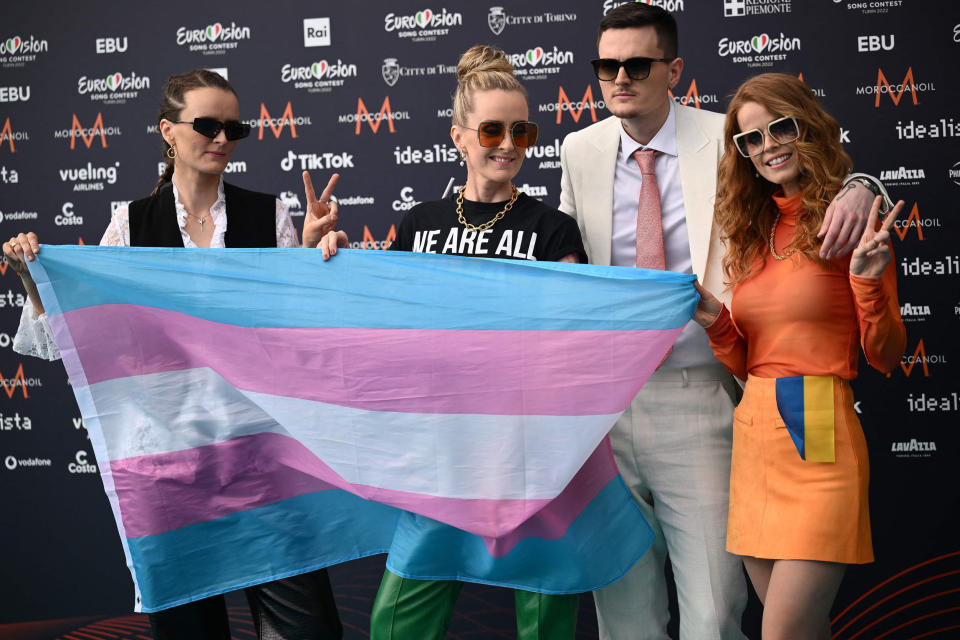
Systur’s folk ballad Eurovision entry, “Með hækkandi sól” (“With the Rising Sun”), is an ode to the promise of the sun’s warmth and light overcoming the cold darkness of winter.
The lyrics of Australian contestant Sheldon Riley’s song, “Not the Same,” also celebrate light shining through a broken darkness — and have resonated so strongly with some LGBTQ fans that the song is being hailed as a gay anthem.
“I never really set out for it to be an anthem,” Riley told the Netherlands’ OUTtv. “For me, it was just a song that I wrote when I was 15.
“I was first diagnosed with Asperger's at 6 but also grew up in a very religious and reserved family,” he explained. “So the idea of being gay and being all of those things that Eurovision is so proud of being wasn’t acceptable for me, it was just this thing that was constantly prayed over. ‘We pray that Sheldon will be a real man; we pray that Sheldon won’t be gay, will be straight, will have a wife, will have kids. We’ll just constantly keep praying to fix something about you.’”
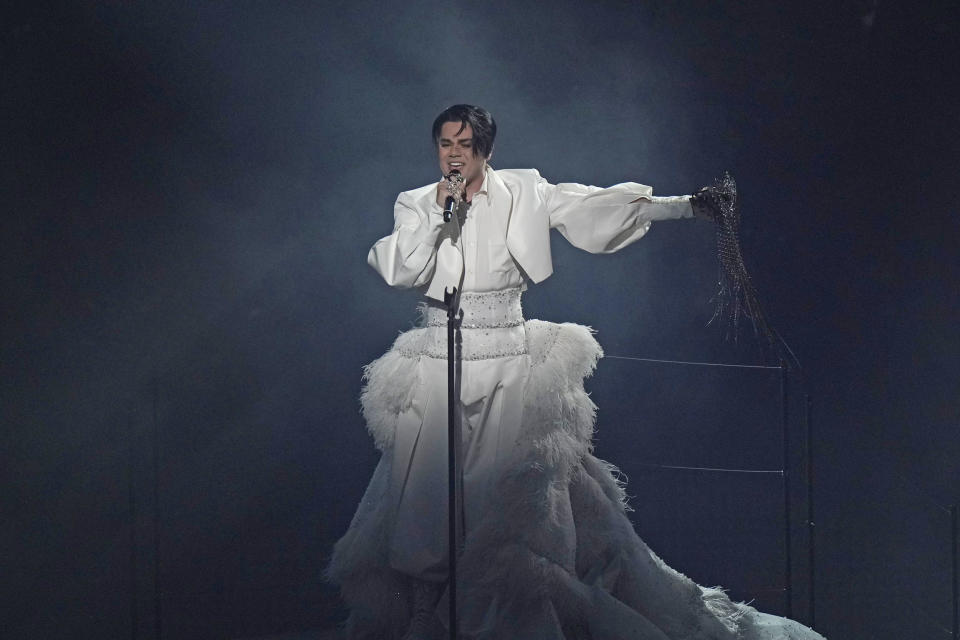
Riley said coming out at about 14 or 15 was hard, but he could no longer be defined by what other people wanted him to be.
“There’s a lyric in the song that ‘the light shines bright through those who’ve broke inside,’” he said. “I think so many people in the community — in all communities — can feel that feeling of feeling so broken, almost like you’re unfixable.’”
American viewers may recognize Riley and his trademark bejeweled face mask — he made it to the quarterfinals of season 15 of "America’s Got Talent" in 2020. For this year’s Eurovision finale, he’ll wear a dazzling white costume covered in more than 90,000 pearls, crystals and feathers.
Another contestant who will be familiar to Eurovision fans is Italy’s Mahmood, who competed for the host country in 2019 and was the runner-up in that year’s Grand Final. This year he’s back in a duet with young rapper Blanco called “Brividi” (“Chills”). The song’s official video includes unmistakably sexual scenes of Mahmood with another man, leading The New York Times and others to paint this as a sign of growing LGBTQ acceptance in Italy.
So far, Mahmood has steadfastly balked at discussions of his sexuality, telling the Italian edition of Vanity Fair in 2019 that “declaring ‘I’m gay’ leads nowhere.”
“If we continue with these distinctions,” he said, “homosexuality will never be perceived as a normal thing, which it is.”
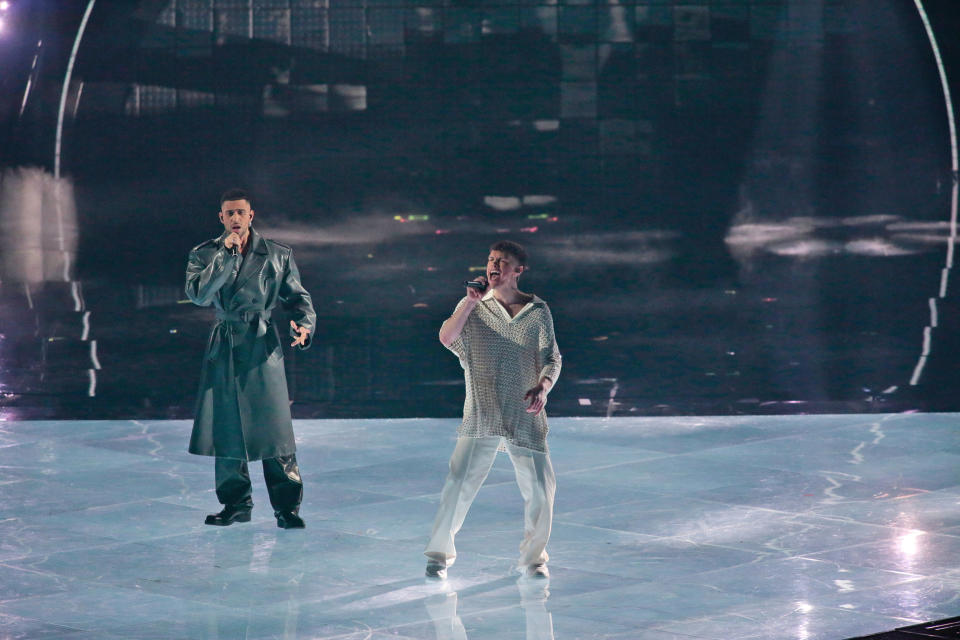
Distinctions and firsts aside, who will win this year’s Eurovision Song Contest? Fans agree that it’s a year with several strong contenders, including Sweden’s Cornelia Jakobs with the catchy “Hold Me Closer,” and the operatic “River” from Polish singer Ochman — who, should he win, would become the first American-born champion since Katrina & the Waves won for the United Kingdom in 1997.
Bookies are betting the European public will vote with their hearts this year and give the crown to Ukraine’s Kalush Orchestra and their folk-rap song “Stefania.”
But with the Eurovision Song Contest, only one thing’s ever for certain: Anything can happen, and it usually does.
The Eurovision Song Contest Grand Final begins at 3 p.m. ET/12 p.m. PT on Saturday, and for U.S. viewers it streams live exclusively on Peacock.
